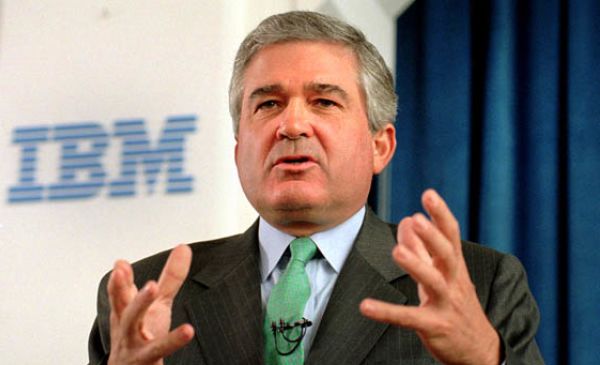I’ve received some push-back on my last post on “leadership” as a powerful differentiator. Several marketers felt that being the leader is not critical to success. All right, let’s spend some more time on this subject.
First, let’s start with the numbers. If you study categories, you will discover a simple but startling reality about market share: Your place in the market tends to be geometric. If the leader has a 40% share, the number two brand usually has half that, or a 20% share. Number three has half again, or a 10% share, while number four has a 5% share. Believe me, over time these numbers are very accurate. This means that number one is wonderful, number two can be terrific, number three is threatened and number four can be fatal.
Jack Welsh of General Electric fame made his reputation on the following principle. He said to his people, “I want to be a number one or number two. If not, I will sell the business.” What he recognized was what I call “The Law of Duality.” Most markets, over time, become a two-horse race.
The bottom line supports what we have always said, “Better to be first than to be better.”
Let’s continue to talk about why leadership is a powerful communications message. As I wrote in the New Positioning, my 1996 sequel to Positioning, the human mind tends to be insecure when it comes to purchasing things.
Psychologists have outlined five basic risks that come into play, depending on what you are buying. They are:
— Monetary Risk: Is it worth the money?
— Functional Risk: Will it work as promised?
— Physical Risk: Is it safe to use?
— Social Risk: How will I look to my friends and neighbors if I buy it?
— Psychological Risk: How will I feel about myself for buying this product?
In other words, to most people, purchasing things can be a risky business. That’s why most people don’t know what they want, and most people buy what they think they should buy.
Based on this premise, another psychologist developed a theory that can be described as “following the herd.” His point is that “we determine what is correct by finding out what other people think is correct. We view a behavior as correct in a given situation to the degree that we see others performing it.”
This is why leadership as a concept is a powerful communications idea. It tells people what others are buying, which makes them comfortable in their purchases. It’s also why word-of-mouth is a powerful motivator; you are being told by others why they purchased a product.
An example of the herd effect? Consider the sport utility vehicle craze in recent years. You couldn’t watch television without seeing one of these vehicles driving into a jungle, through a desert or up a glacier. But how many of these vehicles actually leave the highway? Less than 10%. Ask a person if they are about to drive their vehicle into the bushes, and they will say, “What? And scratch up my $40,000 car?” When you ask them why they bought it, they will probably answer, “Hey, you never know. I might have to go into the woods some day.”
Want the real reason? They bought it because everyone else bought one.
The same could be said for the current MP3 craze. It’s hard not to buy an iPod after you’ve seen 20 or 30 people walk by with those things plugged into their ears. (What are they listening to that I’m missing?)
Finally, leadership can be expressed in many ways, and you don’t have to hit people over the head with your No. 1 status.
Many years ago, Cadillac came out with a great way to express their leadership (at the time). Their line: “The leader should do more. It’s only right.”
Nike could nail down their leadership by simply stating the obvious, “What the world’s best athletes wear.” (Nike should know this since they bought them all.)
There are also times where your leadership is clearly understood by your customers, so it doesn’t have to be mentioned. Quiksilver, the dominant and very hip leader in surf and skate clothing, probably should keep their size and dominance under wraps. The founder, when asked why they didn’t expand into wider distribution, replied, “Big is the enemy of cool.”
So there you go. If you want to use a meaningless slogan instead of declaring your leadership, be my guest. Or if you feel you’ll find happiness as an also-ran, all I can say is good luck.
The Blake Project Can Help: The Brand Positioning Workshop
Branding Strategy Insider is a service of The Blake Project: A strategic brand consultancy specializing in Brand Research, Brand Strategy, Brand Licensing and Brand Education





2 comments
Martin Bishop
October 31, 2007 at 12:42 am
I think you’re absolutely right about the benefits of leading a category. Speaking as the ex-brand manager of a #3 brand in a commodity category I can vouch for the difficulty of trying to knock off an incumbent.
But does that mean that leaders are best served by making leadership the central part of their positioning? Won’t they get most or all of the benefits of leadership whether they talk about it or not?
Sure, if you’ve got nothing else to say, talk about leadership but, if you do have something else, my view is you are better rewarded to talk about that.
Jason M. Hendler
October 31, 2007 at 8:43 am
While I am intrigued by your “Law of Duality”, which I will give more thought, I want to address your reference to Jack Welch and his philosophy of being “#1 or #2, or sell”.
I forget which book of his it was, but he recanted that philosophy after hiring a military academy graduate, who told him that as long as you are making strong profits, you should never retreat. Further, he was advised to challenge his managers to “redefine” their markets, so that they were no longer #1 or #2, which caused them to think about how to expand their reach into parallel / adjacent market spaces.
I remember Michael Armstrong becoming the head of Hughes Aircraft Co., and repeating Jack Welch’s philosophy. It lead him to divest some profitable business, which hurt HAC in the long run.
Comments are closed.